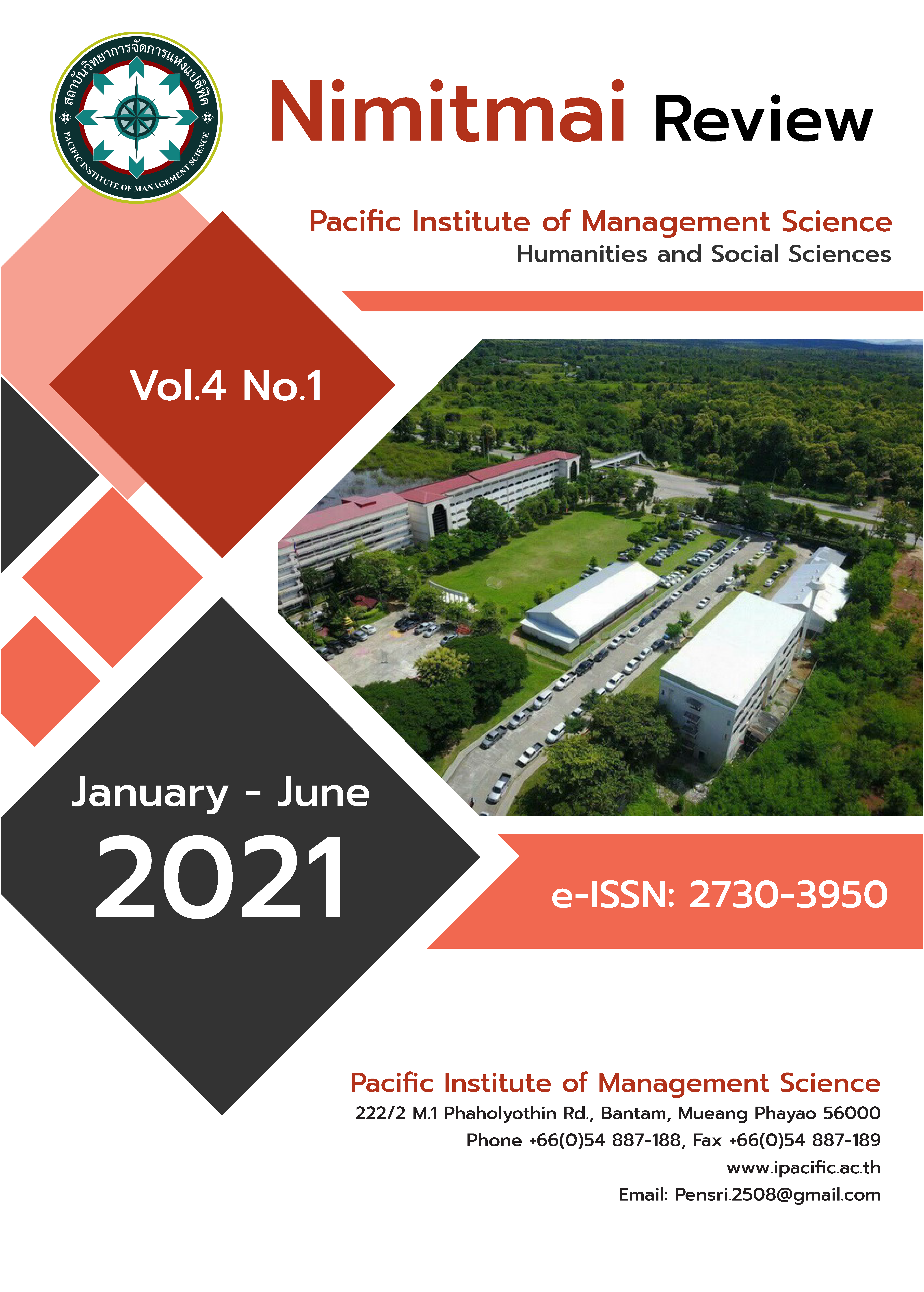Potential of Wellness Spa Business in the Eastern Region of Thailand to Be a Hub of Health Tourism
Keywords:
potential, wellness spa industry, health tourism, management competency, , brand equity building, Thainess hospitalityAbstract
This research aims at studying 1) the potential of wellness spa businesses in the Eastern region of Thailand, innovation in the industry, management competency, and government supports to enhance the competitiveness of the wellness spa industry. This is a qualitative research employing in-depth interviews and focus group interviews to collect data. The key informants are 60 people involved in the development and the promotion of wellness spa businesses in 4 provinces of the region. A total number of 60 respondents are selected with purposive selection. They are public officers, entrepreneurs, leading community members, scholars, and tourists who have used wellness spa services.The findings reveal that key success factors of the wellness spa industry in the region are Thainess hospitality, certified professional employees with expertise, menu of a variety of choices, and attractive tourism resources. In order to create competitiveness in the global arena, wellness spa businesses in the region should be positioned as enterprises offering holistic wellness spa services for physical, mental, social, and spiritual health. Other than health services, there should be services in the areas of beauty, nutrition, weight loss, body shaping, and anti-aging. Employees must be trained on massage skills, salesmanship skills, service skills, interactive skills, and language proficiency. The government supports are strongly needed. The supports include 1) training employees, 2) developing management competency, launching aggressive marketing and integrated marketing communication campaigns. Public officers should change their mindset from working with a controlling concept to a supporting concept. They should act like coaches, mentors, and advisors to help enhance competitiveness of the wellness spa industry. In order for Thailand to become an international hub of health tourism, the government must execute brand equity building for Thailand health tourism, while entrepreneurs must build brand equity for their own businesses.
References
Department of Tourism. (2018)Tourism Plan # 2 (2018-2021) retrieved on September 15, 2018 from https://www.thai- german- cooperation.info/admin/uploads/publication
Erfurt-Cooper, P. and Cooper, M. (2009). Health and wellness tourism: Spas and hot springs. Bristol: Channel Views Publications.
Lucille Nancy Maugeri McKain (1987) Anal Ysis of Mccarthy Learning styles and Integration of Critical and Creatne Thinking, University of Massachusetts Boston.
Scholar Works at UMass Boston Health and Environment in Sustainable Development.(1998) Five Years after the Earth Summit WHO/EHG/ 97.8. WHO, Geneva.
Henseler, J., Ringle, C.M. and Sarstedt, M. ( 2015).A new criterion for assessing. discriminant validity in Variance based structural equation modeling. Journal of the Academy of Marketing Science. 43(1),115-135.
Hodgetts, R.M.(1991) Organization Behavior: Theory and Practice. New York: Macmilan Publishing Company.
Kaelyn Barron (2002), Readers Choice Anards Corde Nast Traveller TCK Publishing Readers Choice.
Kantawon sthaworn Kantasini, Unthong Akrapong, and Khowsa-ad. Mingsan (2015) Competitiveness of Thailand’s health Tourism Industry. Chiangmai: Institute of Public Policy.
Khaewattana Yoswade (2015) Thai Spa Development toward Sustainability Service Psychology Method Academic Journal Bangkokthonburi University, 4(1), 174-184
Thaemngoen Jaikaew (2015). Patterns of marketing potential development for health tourism: case study of spa business in Nakhonratchasima province Bangkok: National Research Council of Thailand and The Thailand Research Fun (TRF).
The Office of General Director of the Ministry of Tourism and Sports (2012). Final Report on the Promote a Medial and Health Tourism Hub According to the Economic Development of the Trio: Thailand, Malaysia, and Indonesia Bangkok: The Office of General Director.
Tourism Authority of Thailand. (2012) The Situation of the Promotion of Thailand’s Health Tourism. retrieved on July 6, 2018 from http://www.etatjournal.com/Health_Tourism.
Zeithaml, V. A., Berry, L. L., and Parasuraman, A. (1996). The behavioral consequences of service quality. Journal of Marketing, 60(2), 31-46.
Website: https://thaiembdc.org/eastern-economic-corridor-eec



